25 Home "Upgrades" That Are Total Downgrades
Don't waste a penny on these projects that tank your home's value.
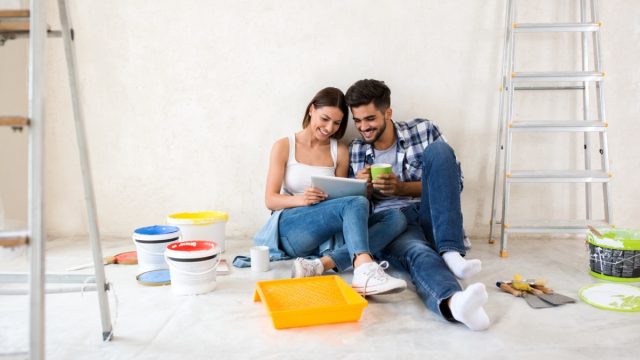
With so much time stuck inside right now, it's tempting to start some projects you've been putting off around the house. But before you make like a Property Brother, pick up a sledgehammer, and renovate, consider the costs. Many modifications that initially seem like a great idea may actually lose you money in the long run. Rather than sinking your hard-earned cash into an upgrade that will leave you in the red, read on for the worst home improvement projects that real estate professionals suggest avoiding. And if you're looking to freshen up your space, here are 15 Great Home Projects to Tackle While You're Quarantined.
1
Putting in high-end kitchen appliances
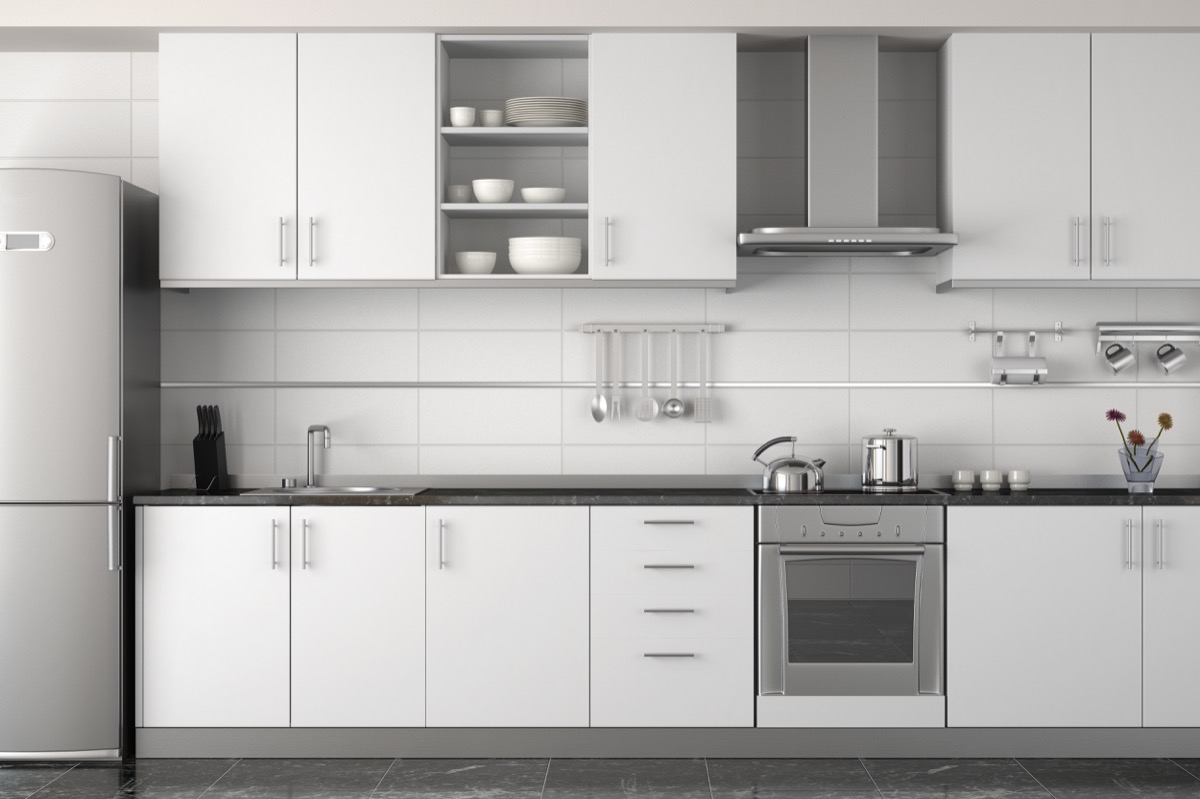
Spending tens of thousands of dollars on a Sub-Zero refrigerator, a pot filler faucet, a wine fridge, and an oversized range hood may improve your home culinary experience, but the return on investment on upscale kitchens is surprisingly low—just 59.7 percent, according to Remodeling magazine's 2019 Cost vs. Value report.
"Buyers don't want anything that's going to be a major energy drain," explains Charlotte Guernsey, principal broker at Gate House Realty in Beacon, New York. And if you want a subtler upgrade to your cooking area, start with these 25 Kitchen Decorations That Will Completely Transform Your Space.
2
Adding a zoned HVAC system
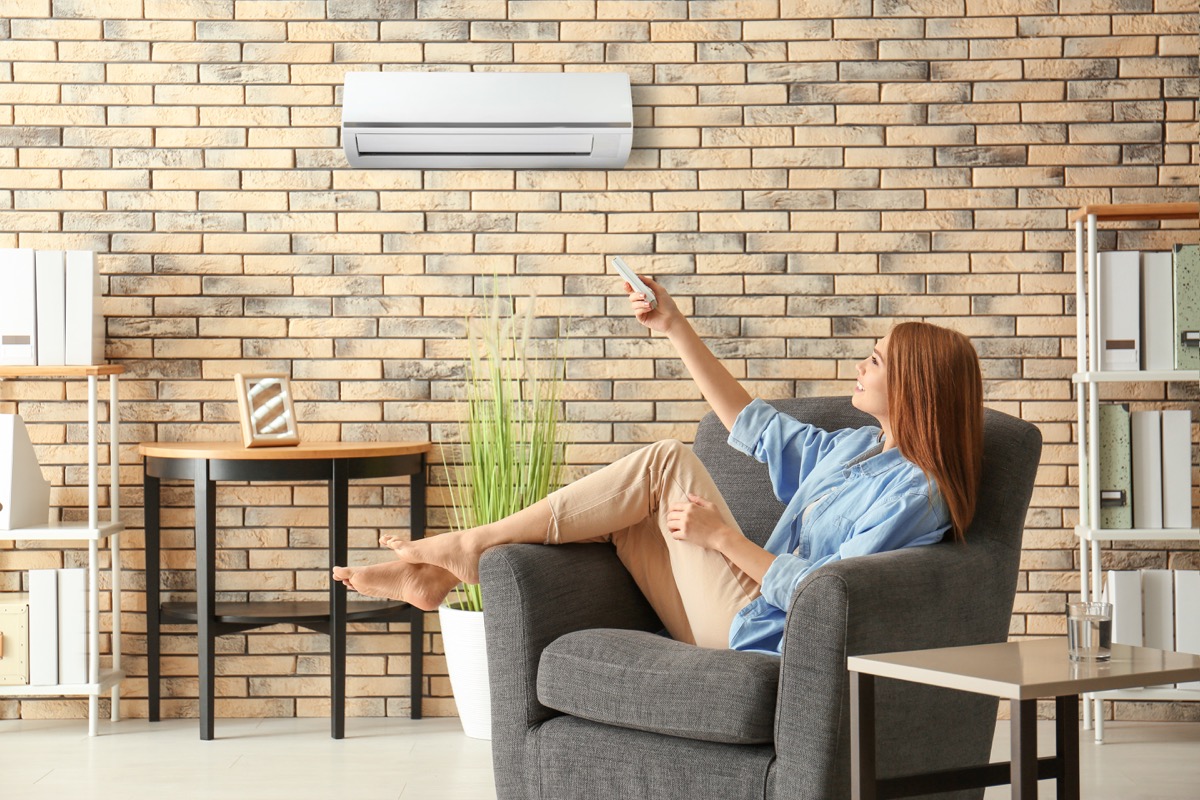
Having air conditioning in every room may be a non-negotiable in many climates, but that doesn't mean installing an HVAC system in your home will necessarily earn you a healthy return in the long run. "While these are incredible options for a homeowner—helping them control their heating and cooling needs and, hopefully, cut down on utility bills—these upgrades do not translate to an increased sale price for the home," says Romana King, director of content at Zolo Realty in Canada. She explains that most sellers will never recoup the cost of having the system installed in the first place.
Plus, in the midst of the coronavirus pandemic, window air conditioning units are actually safer as it doesn't recirculate droplets like central air conditioning. To learn more, check out Does Air Conditioning Spread Coronavirus? We Asked an Expert.
3
Adding a home office
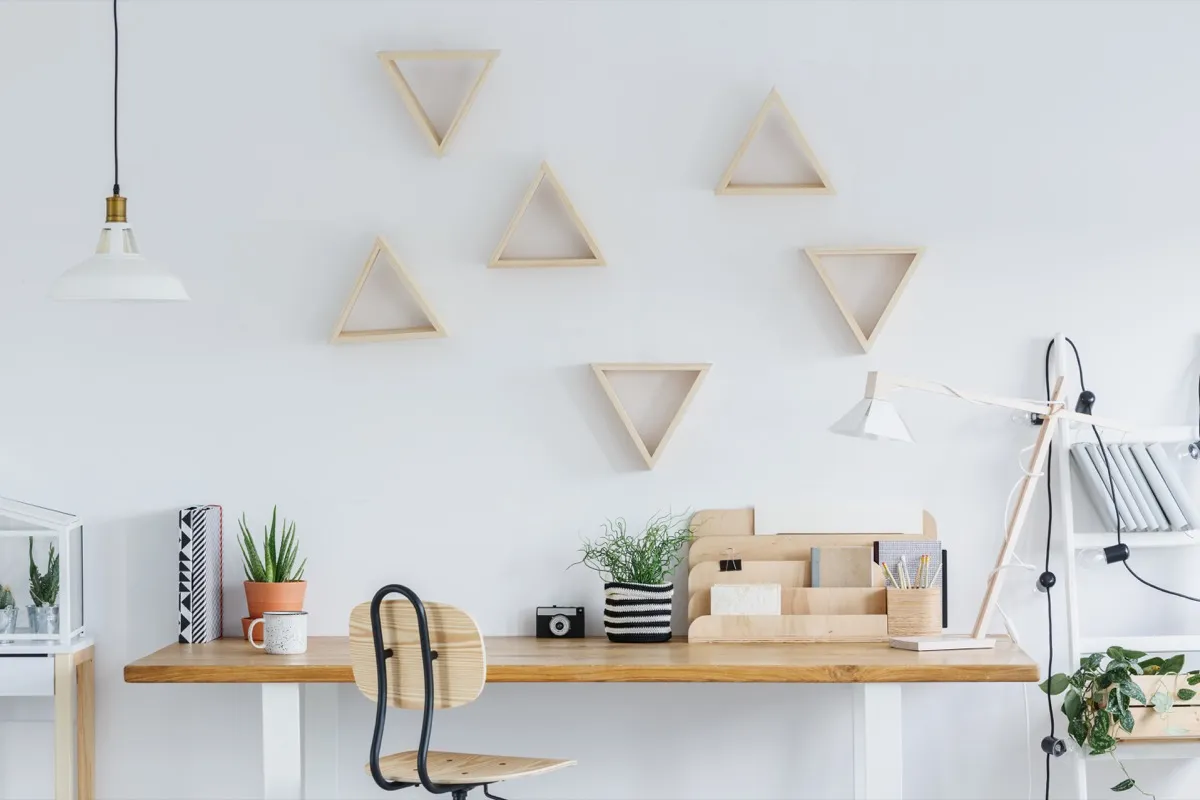
Despite the fact that most people are now working remote, a private office is usually too niche of an addition to earn much cash from a potential buyer. "The more attractive to the mass market, the better when selling a home," says Kevin Lackaff-Gilligan, a realtor at Engel & Völkers Minneapolis. "The more personalized something is, the bigger a turn-off it is to the majority of buyers." So, how little will you recoup for that office? According to a report from Money Crashers, a home office has just a 46 percent ROI.
4
Putting up wallpaper
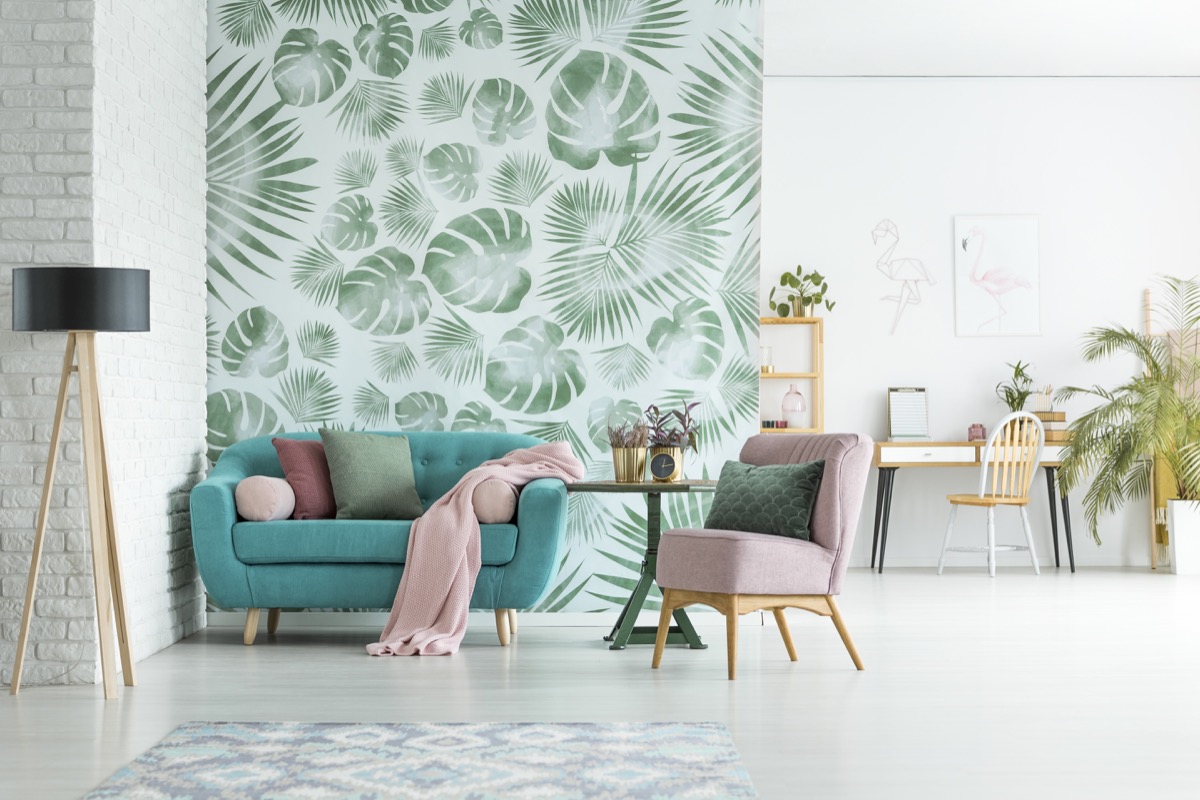
You may love the look of Scalamandré wallpaper, but the odds that you'll find many buyers eager to have leaping zebras on their walls are small. "Over-stylizing does not mean more money," says Julia Segal, business development manager with real estate brokerage firm Bold New York. "A fresh coat of paint… [goes] a long way."
5
Adding a swimming pool

Having a backyard pool to take a dip in on a hot summer day may seem dreamy, but installing one could actually decrease your home's value. "The maintenance cost is a lot. Some people don't want to look at it, some people don't want to use it, and people have to be there to make sure there's not a problem with it," explains Guernsey. "Don't do it as something you plan on making money off of."
6
Turning a bedroom into a walk-in closet
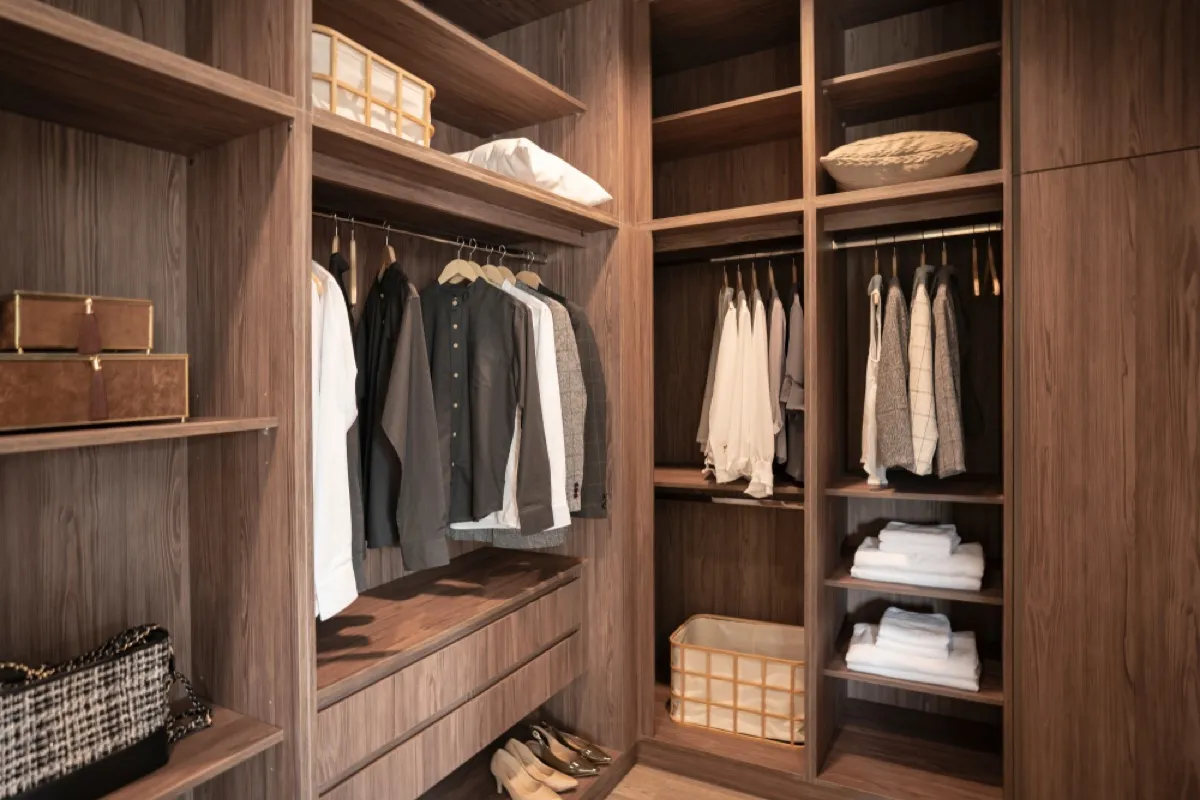
It may seem like that tiny nursery would be put to better use as storage space, but converting a bedroom—no matter how small—into a walk-in closet is a mistake.
"By removing a bedroom, you are effectively removing a room," says King. "This becomes a psychological barrier for buyers: They can't get over the fact that your home is now 'smaller' or offers 'less' than other homes in the area." And for some actual cost-effective ways to change your home, check out these 17 Genius and Affordable Ways to Remodel Your House.
7
Adding a second story
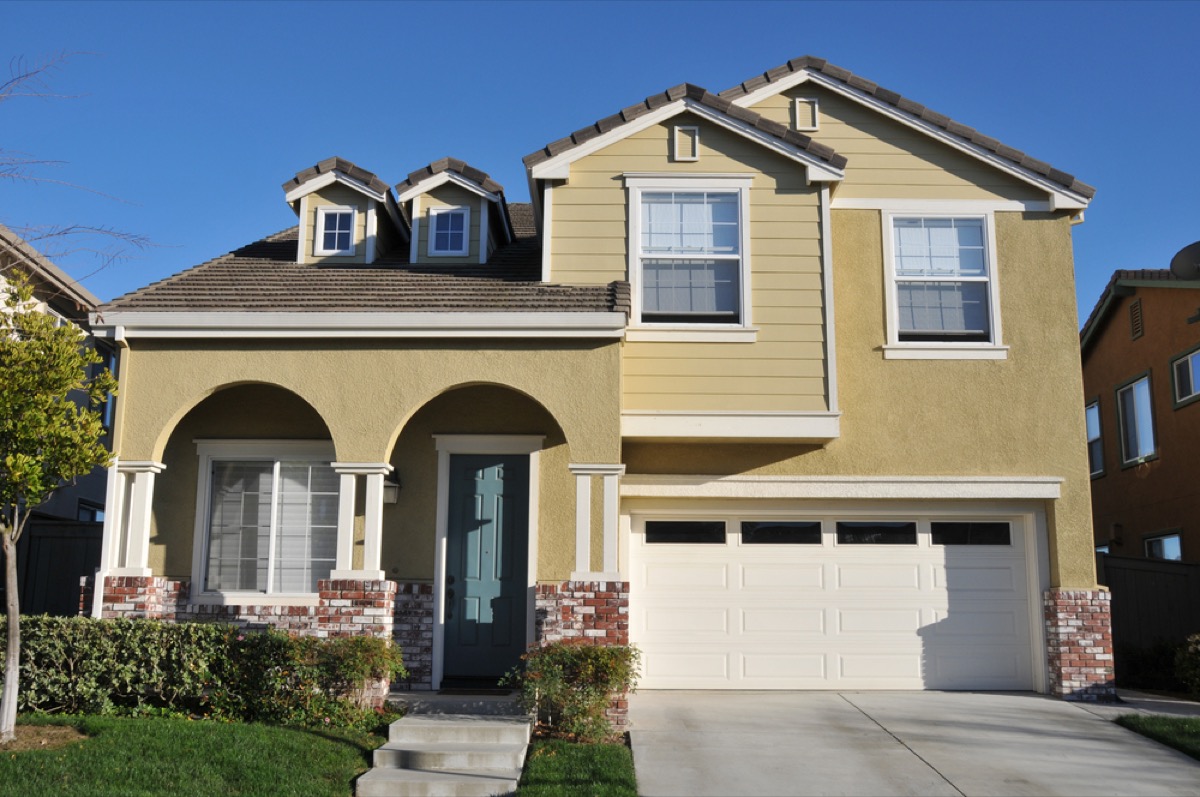
Adding a second level to a single-story home doesn't always add major value—especially when it looks out of place. "When all of the other homes in the neighborhood are 1,400 square feet and yours is 2,500 square feet, it's just overbuilt for the neighborhood," says real estate expert Robert Taylor, also known as The Real Estate Solutions Guy. "As a result, these homes are difficult to sell, especially for the amount the homeowner has invested in the property."
8
Building an addition that alters a home's floor plan
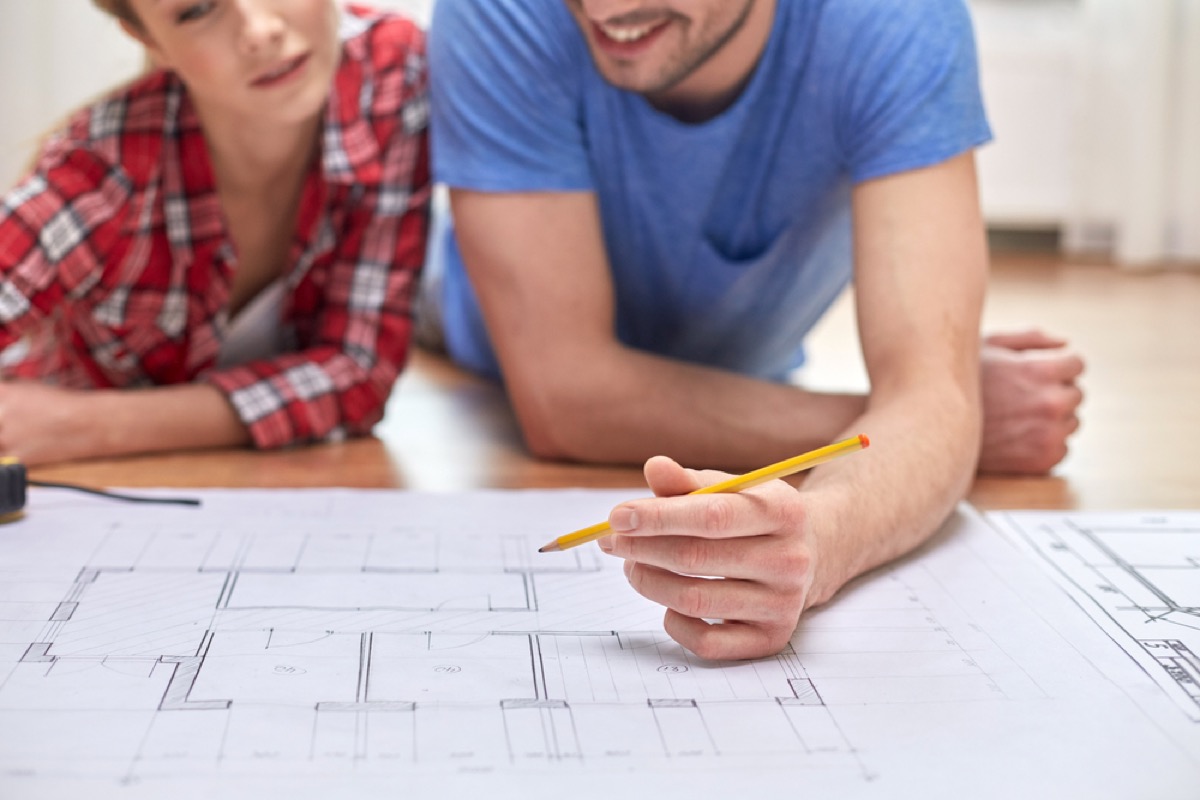
Putting an addition on your house can add major value, but only if it's done the right way. Ones that awkwardly break up an open floor plan or are only accessible through other rooms may make buyers reticent to put in an offer—and can even make your home virtually impossible to sell.
"It's not uncommon to see additions that can only be accessed by walking through bedrooms. To the homeowner, it may have made perfect sense, but to a prospective buyer, this is hard to overcome," says Taylor. "The result can make the home very difficult to sell, and it may become a foreclosure."
9
Combining bedrooms to create a master suite
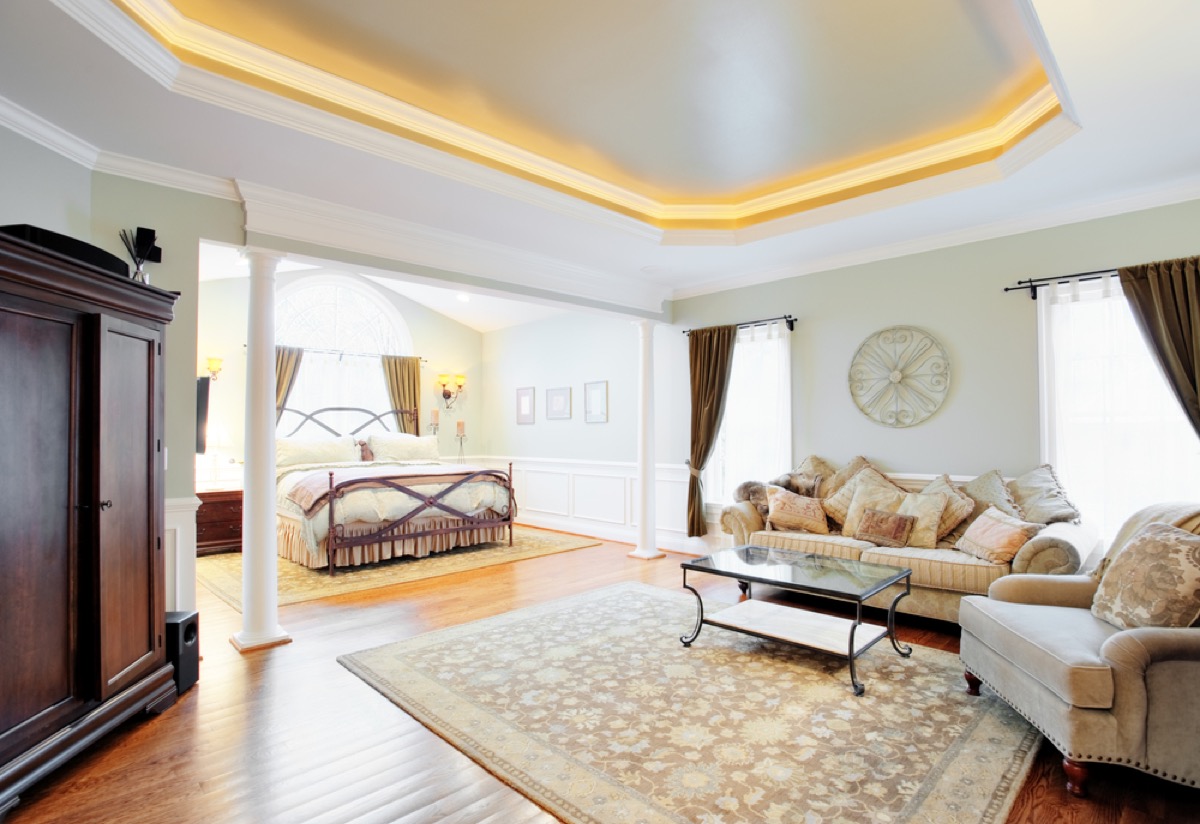
Even if you don't need that guest bedroom or office space, tearing down your walls to create one enormous room is a misstep. "This limits the number of bedrooms and functional utility of the home, which will automatically rule out those buyers that need the extra bedroom," explains realtor AJ Heidmann of McEnearney Associates, Inc in Alexandria, Virginia. As soon as those walls are torn down, your home will automatically appraise for less. And for more renovations to avoid, check out the 5 Things Homeowners Totally Regret Having in Their Houses.
10
Installing wall-to-wall carpet
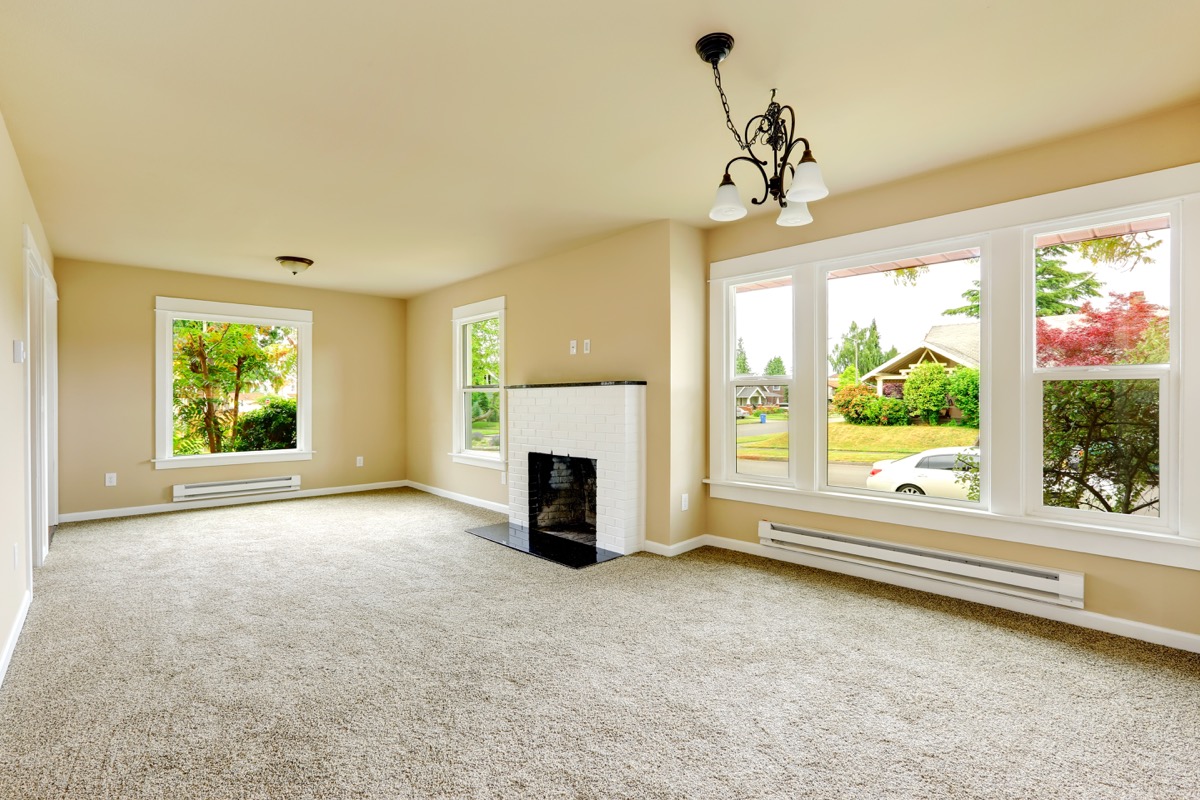
Maybe you don't like the feeling of bare feet on a cold floor in the morning. Well, unfortunately, you're in the minority—so think twice before installing wall-to-wall carpet. "People don't like carpet," warns Guernsey. She says that when it comes to appealing to the most buyers, hardwood is still king.
11
Adding a bathroom
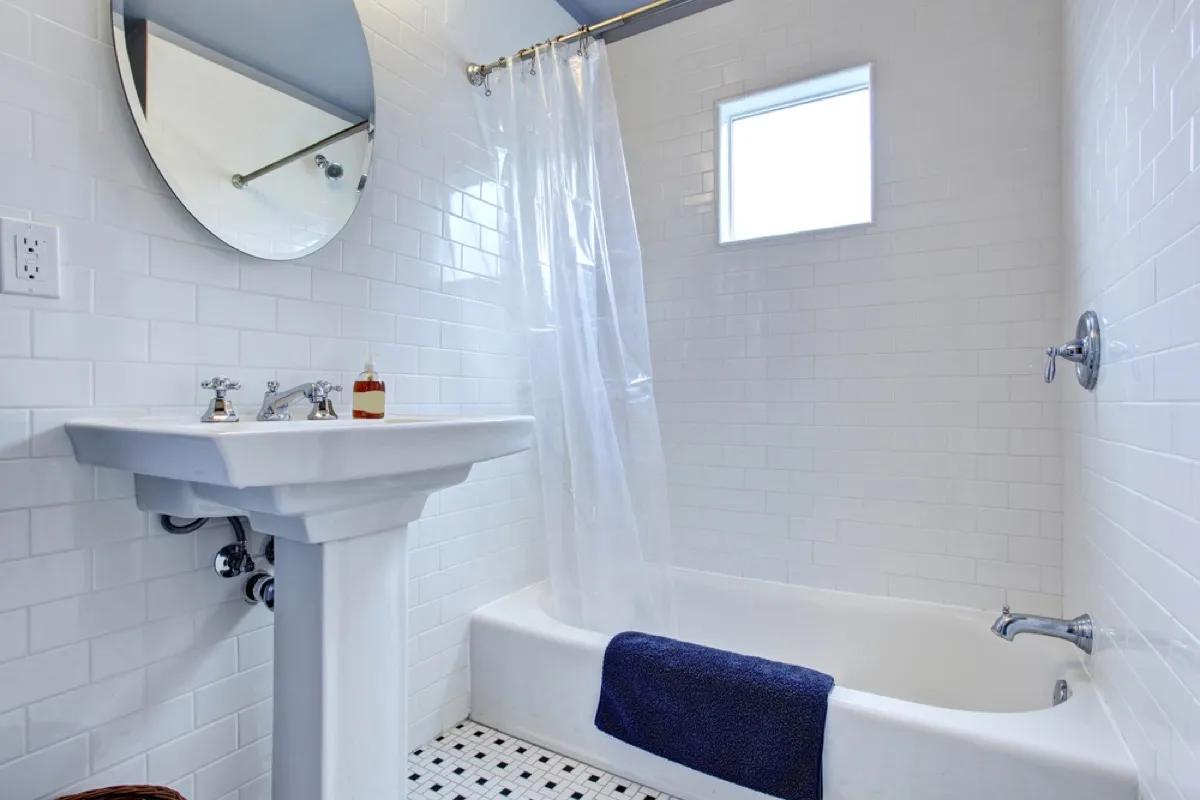
Though it may be nice to have an extra powder room, adding one isn't worth the cost in the long run. According to the Remodeling report, an extra bathroom only yields an average 58.1 percent ROI when it's time to sell. In fact, many buyers will be turned off by the square footage you sacrificed to install that soaker tub. And if you want to upgrade a powder room without a major renovation, check out these 20 Bathroom Accessories That Will Totally Reinvent Your Space.
12
Installing an expensive surveillance system
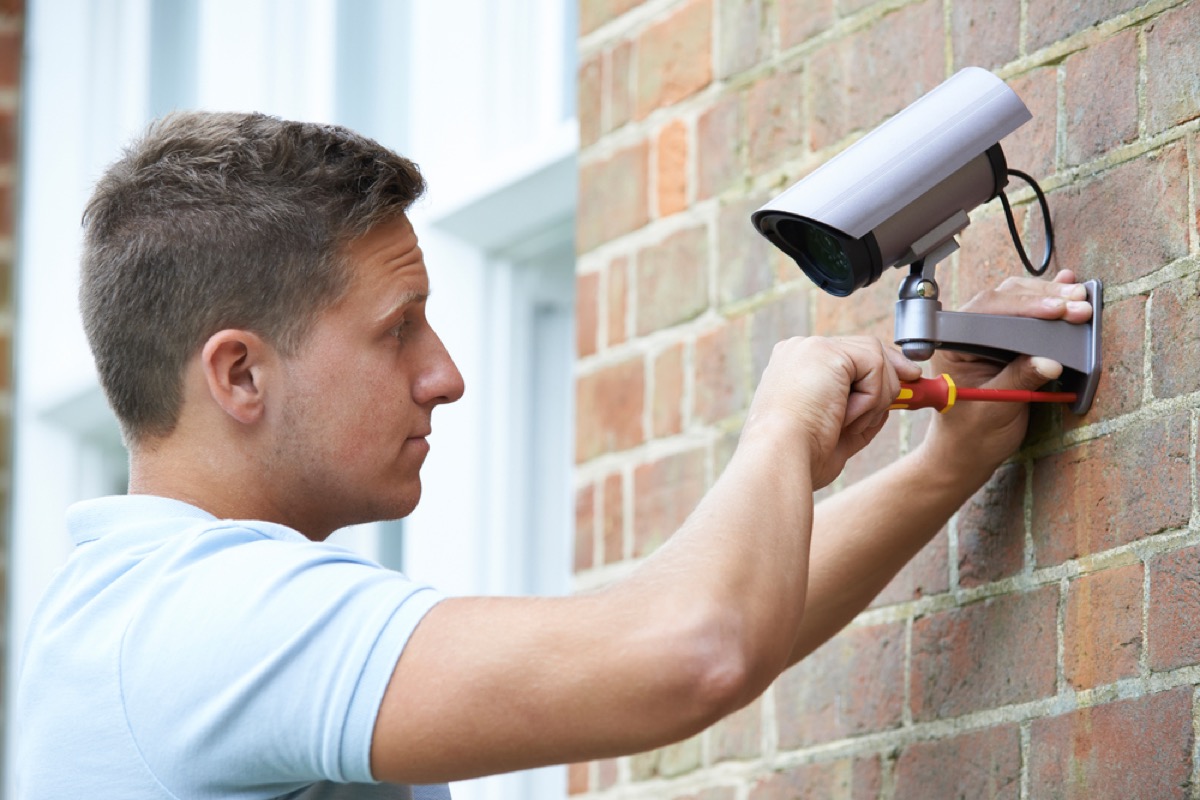
"Excessive surveillance cameras give the home a creepy feel," cautions realtor Benjamin Ross, an investment specialist with Mission Real Estate Group in Austin, Texas. "People want to buy a home, not a commercial facility."
13
Adding built-in shelving
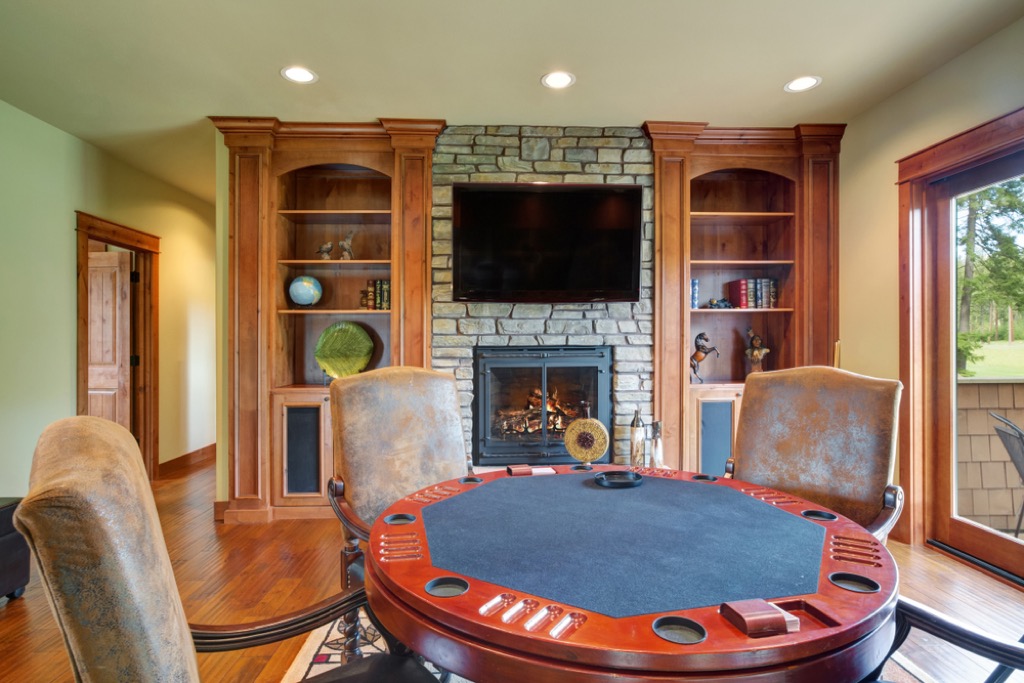
Built-in bookshelves can be a major space-saver, but they won't do much in terms of your home's overall value. That's because, according to Ross, "buyers love a clean slate and want to make their new home their own—not a continuation of somebody else's." Removal of these custom features can be costly, so buyers are less likely to pay top dollar for your home if they foresee having to remove things in the future.
14
Putting in marble counters
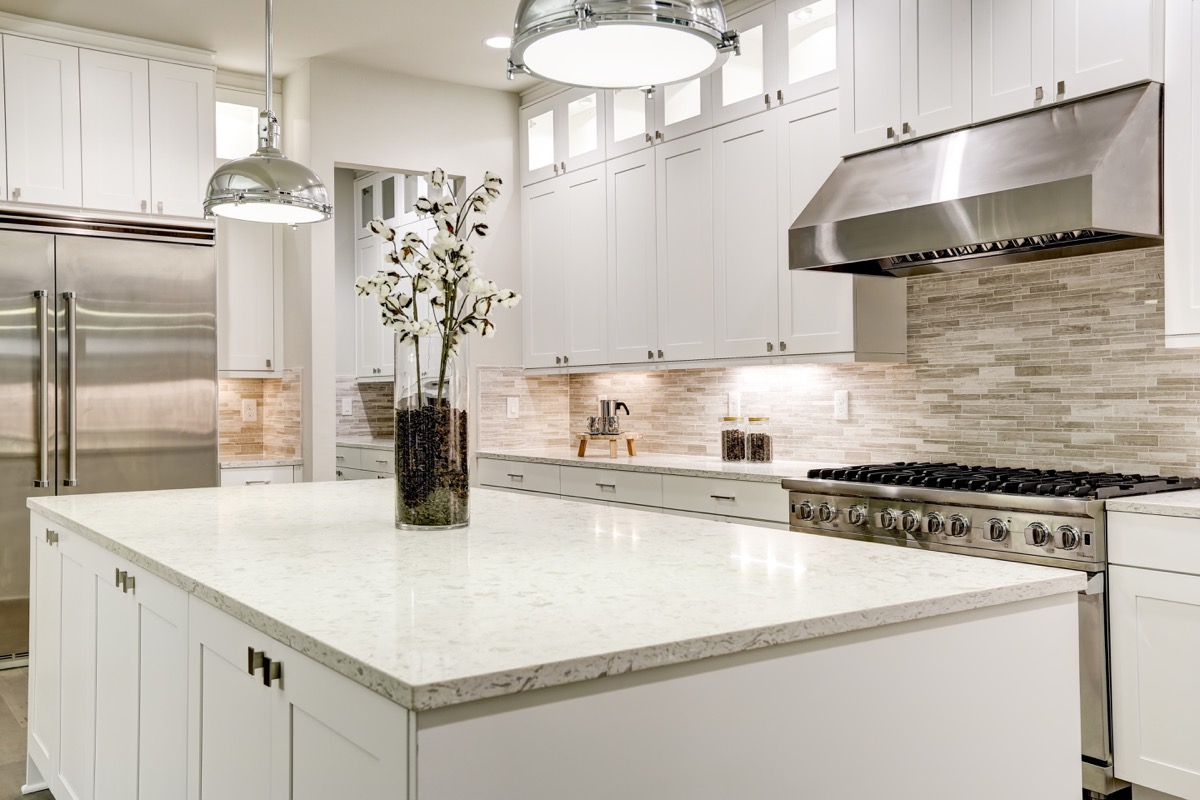
Marble counters are undeniably pricey to install, starting at $40 per square foot. But don't expect them to earn you extra cash when it comes time to sell your house. "They look great, but they stain and the upkeep is unrealistic; the same with slate, which also scratches," says Guernsey. "Go with a quartz or a granite instead."
15
Adding a freestanding stove
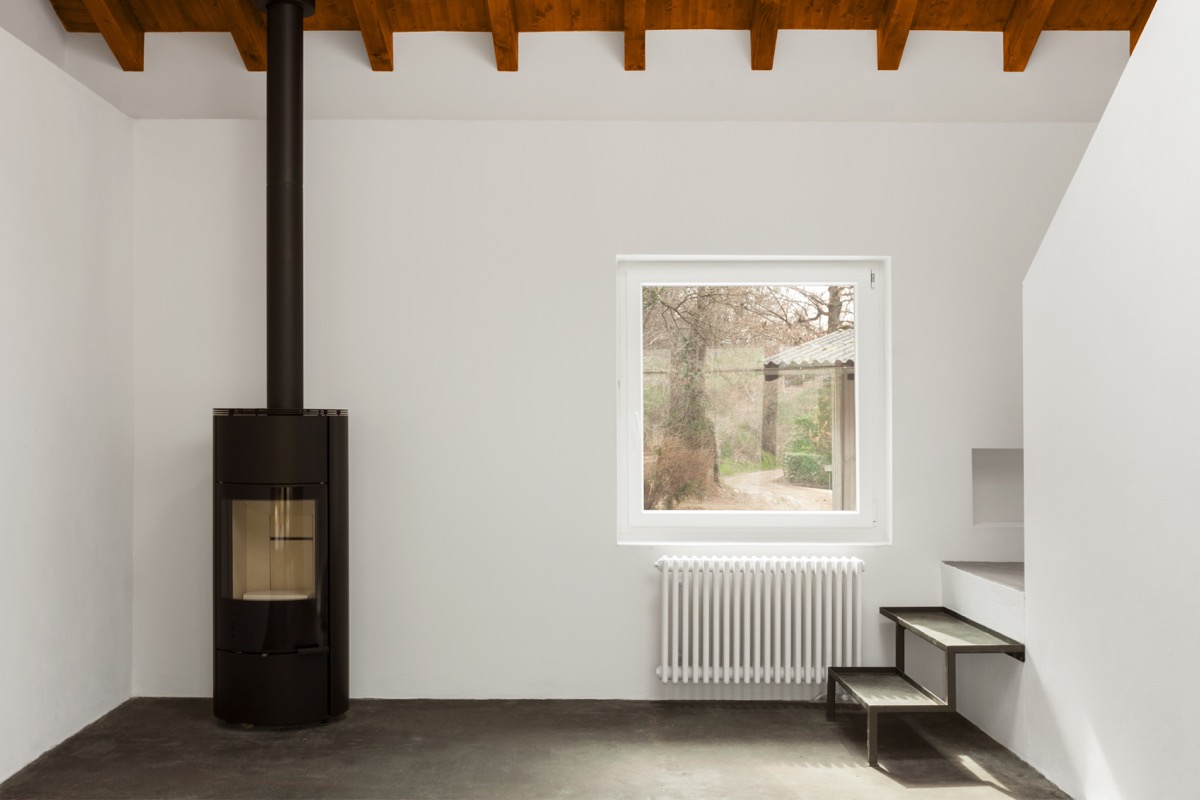
Curling up on your couch on a cold night and enjoying the warmth from your pellet stove may seem quaint to you, but adding one to your house may reduce its overall value. "A pellet stove is not worth doing," says Guernsey. "Things that take up space aren't worth it. Every square inch is so important these days." And for more accessories that make a room smaller, check out the 23 Terrible Home Design Mistakes That Shrink Your Space.
16
Adding tile floors
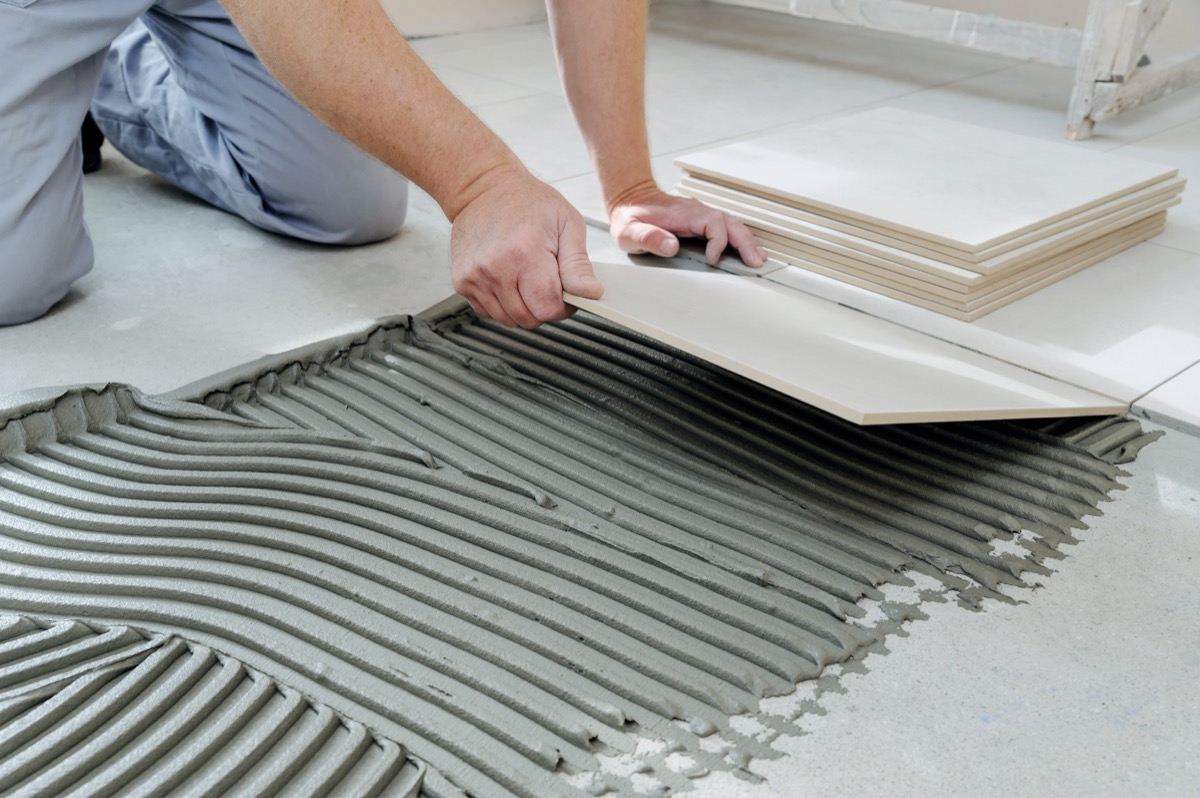
Beautiful ornate tile floors—especially as a vintage accent item—can look great. However, that doesn't mean you should include them in your renovation budget. According to Guernsey, any design element that's niche and hard to clean—like a penny tile floor—can instantly turn buyers off.
17
Installing fancy chandeliers
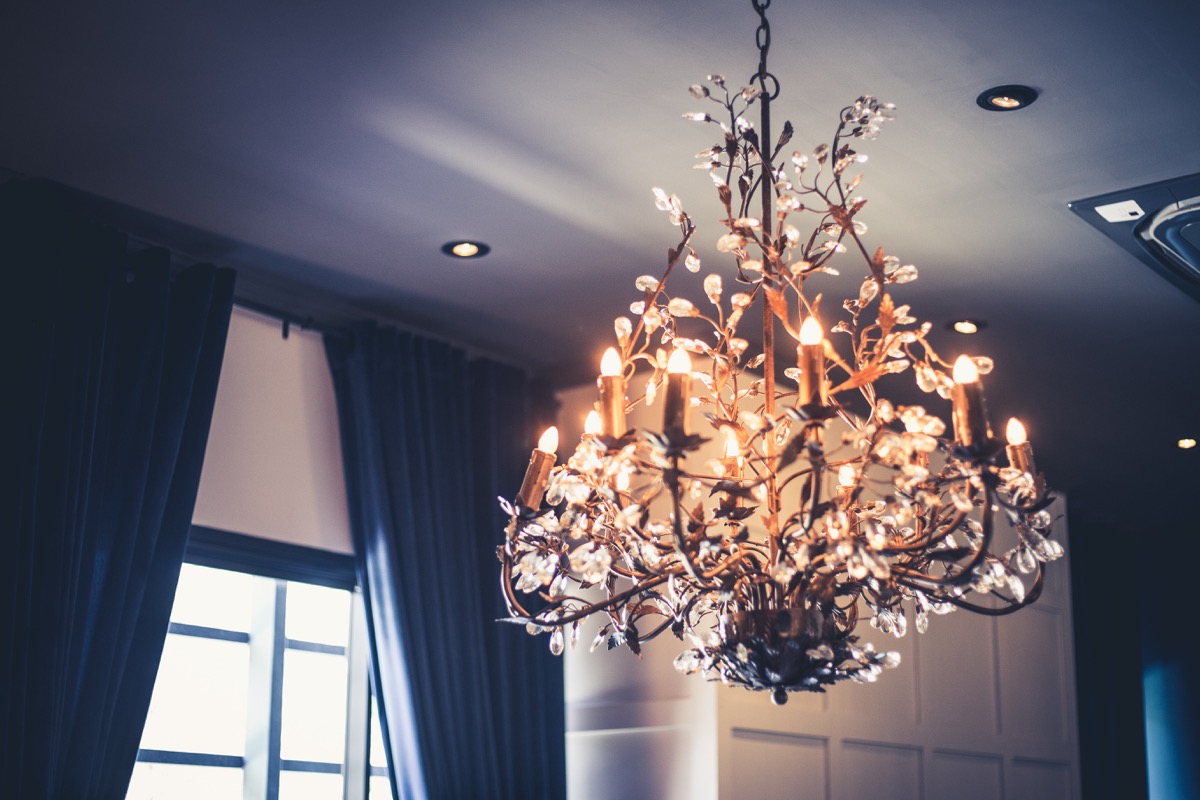
That Murano glass chandelier may be the ideal addition to your entryway in your eyes, but it's definitely not for everyone. "If you have an ornate chandelier in a house, you're going to turn off some buyers," says Lackaff-Gilligan. "If you were to go to a dinner party, you'd be impressed by it, but if you were to buy a home, you wouldn't want it."
18
Adding a sunroom
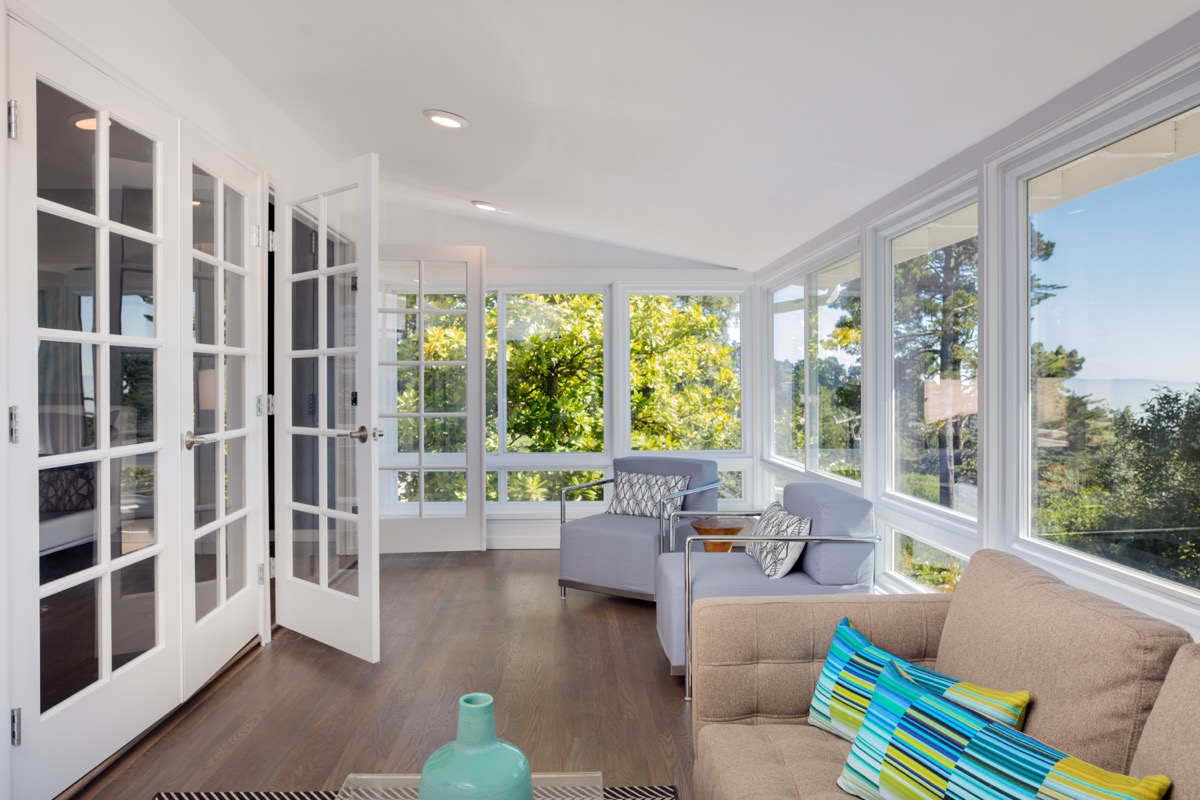
Does spending a relaxing afternoon reading a book in your sunroom seem like a nice idea? Of course. But you'll only waste money adding one to your existing floor plan. According to Remodeling, the average cost of a sunroom addition as of 2015 was $75,700, though it added just $36,700 in value to a home. And since sunrooms are frequently unheated, they're only usable for a few months of the year in most climates, which hardly translates to getting bang for your buck.
19
Turning the garage into an in-law suite
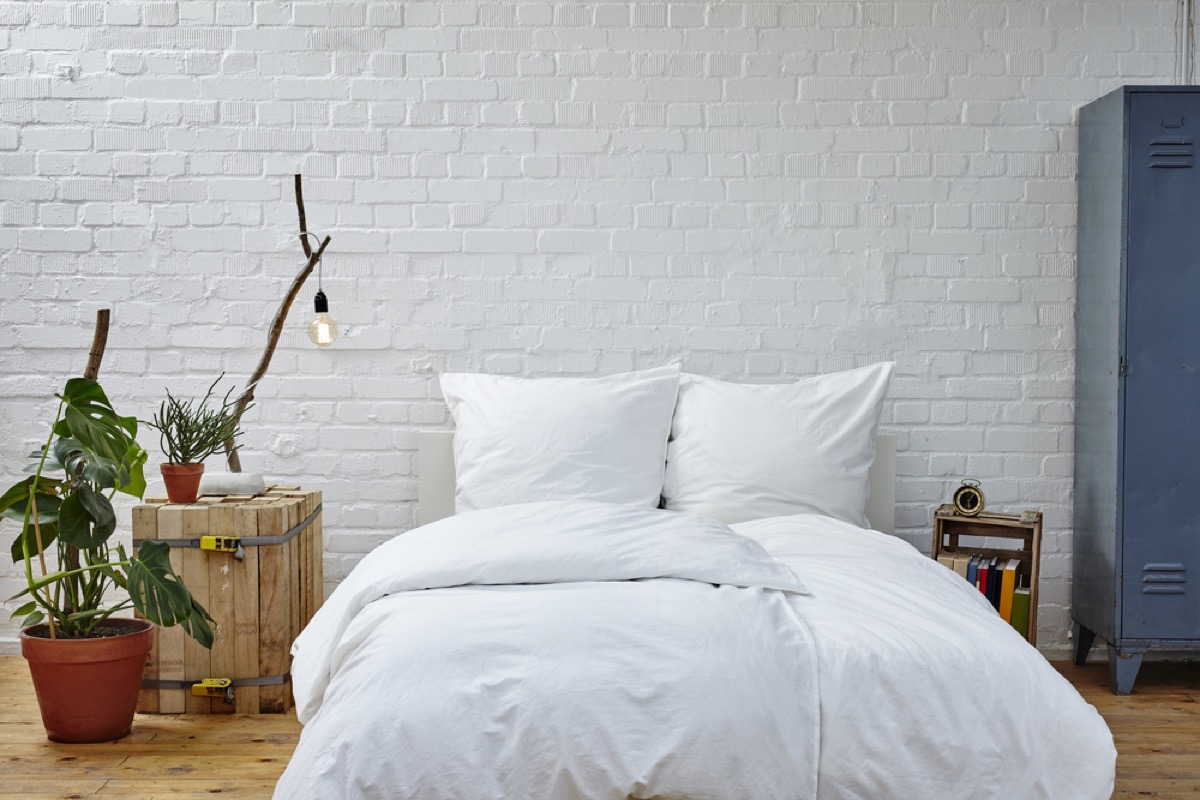
Converting your garage is one instance in which having more interior square footage won't work in your favor. Garages are must-haves for many buyers—so much so that they're willing to give up other supposed essentials in exchange for that covered parking. In fact, according to Realtor magazine, only 19 percent of homeowners said they'd give up a garage for a home in their preferred school district.
20
Installing a shed
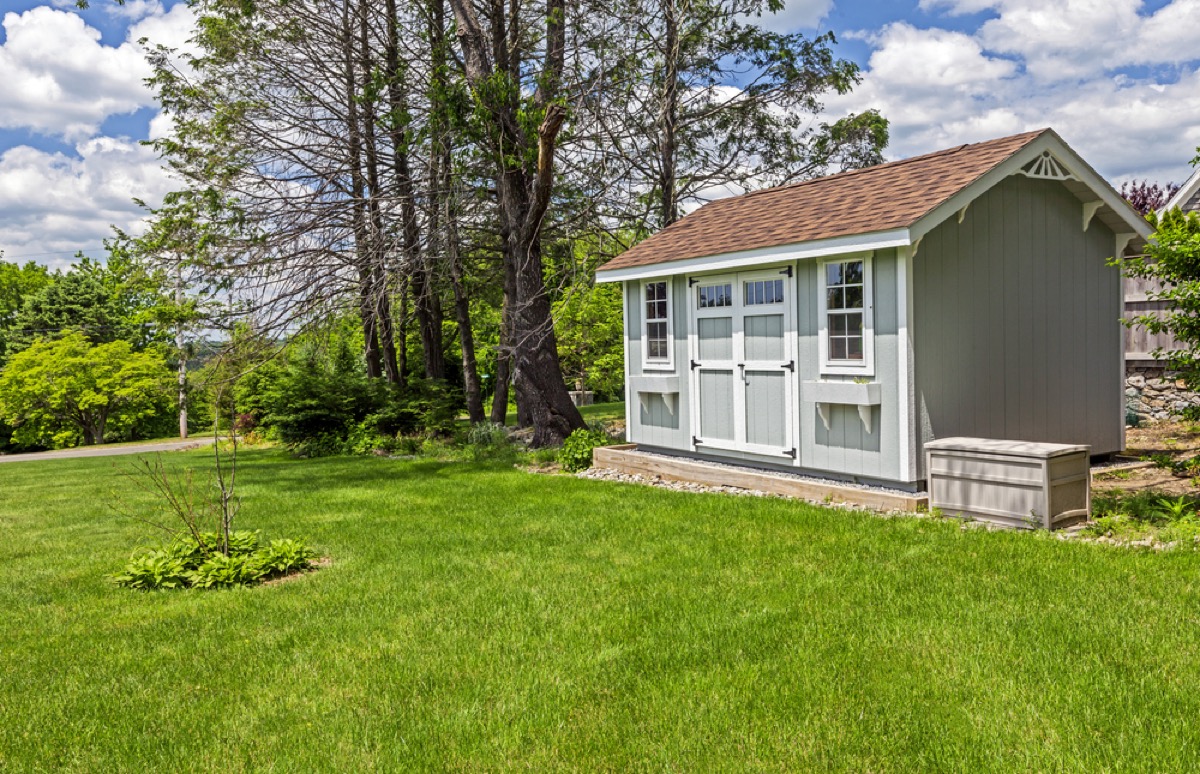
Outdoor space is a major selling point for many buyers all over the country, one they're willing to pay top dollar for. In fact, according to the 2017 Taylor Morrison Consumer Survey, 56 percent of buyers said they'd be willing to sacrifice a larger house for more outdoor space. Given that statistic, it's no surprise that a massive shed dividing up your yard would be a downgrade, and an expensive one at that.
21
Installing a pergola
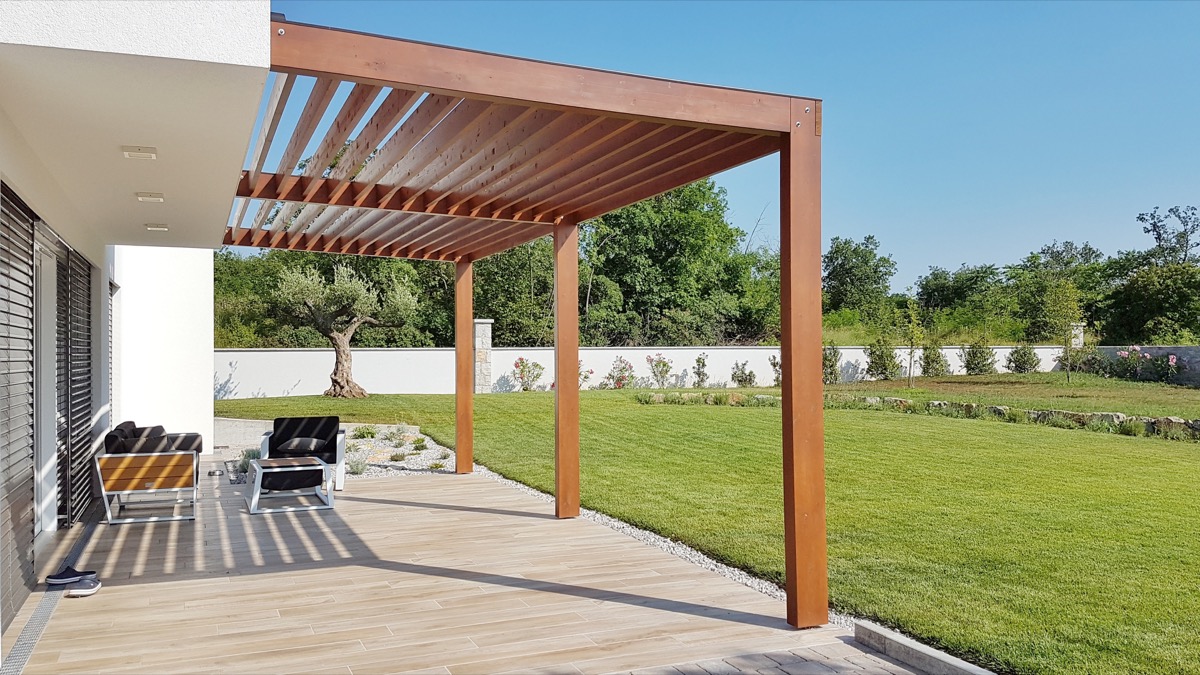
Having an outdoor seating area may be nice, but shelling out thousands on a pergola won't add value to your home. On the contrary, when it comes time to sell your house, it may actually turn buyers off. "Don't add a pergola thinking it's going to make you money," says Guernsey. "If it's not going to extend your square footage like a roofed deck, it's not worth it."
22
Adding a sports court
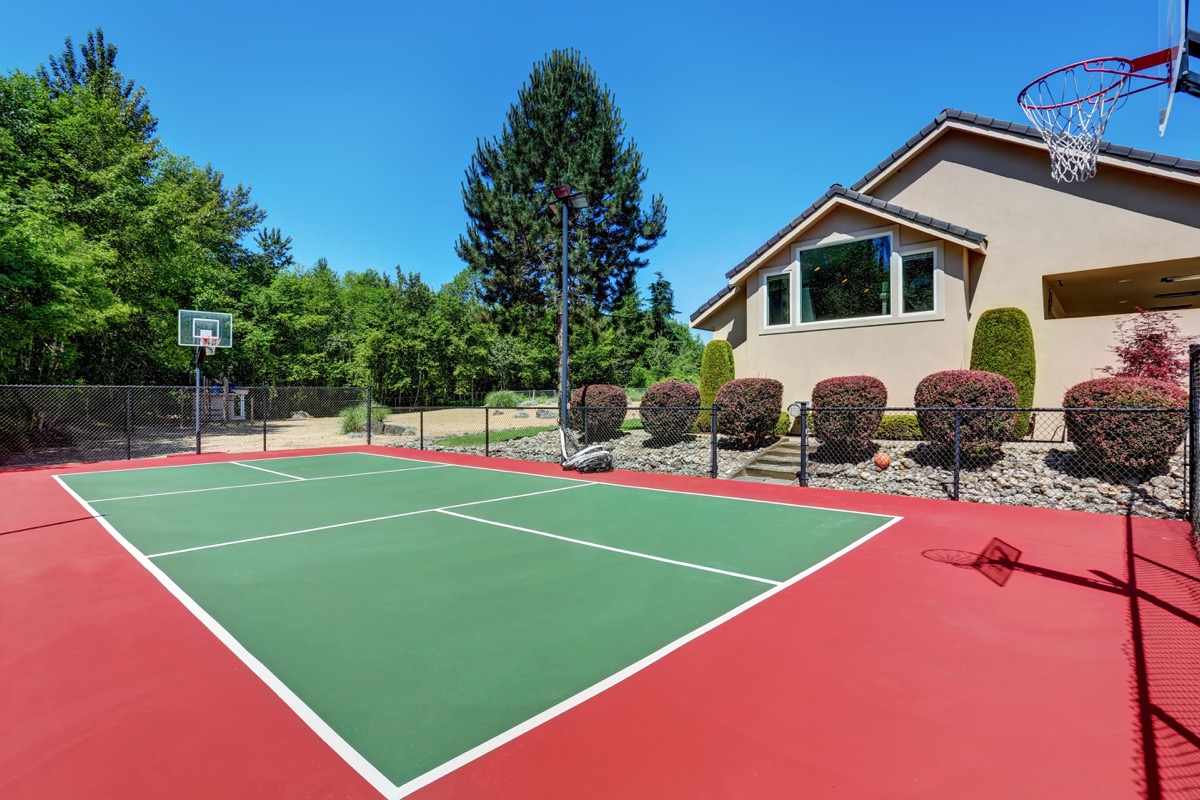
If you've got a sizable property and are under the impression you could dunk on LeBron James, you might consider adding a basketball court to your outdoor space. That said, adding any kind of athletics-specific outdoor area is a poor choice. "The square footage it takes up isn't worth it, and a new buyer will just come in and rip that right out," says Lackaff-Gilligan.
And when you break it down, adding in that court is a seriously expensive mistake. It could cost you tens—if not hundreds—of thousands of dollars due to the clear-cutting, paving, running electricity, and building of the space.
23
Installing solar panels
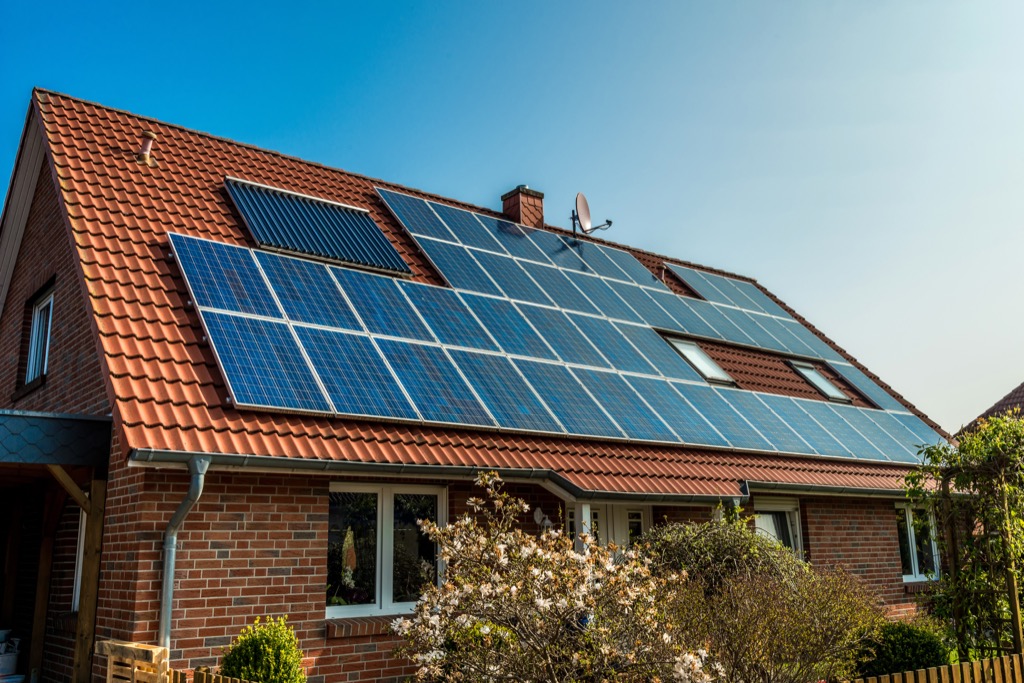
Solar panels are absolutely an eco-friendly upgrade, but don't expect them to be a selling point for most buyers. "The cost of the upgrade versus the raise in value often ends up in a loss of money," says realtor Klaus Gonche of Fort Lauderdale, Florida. While they may lower your energy costs, it can take years to see the returns catch up with what you paid for the panels initially. If you want to do more for the planet without spending a pretty penny, try these 21 Ways to Help the Environment, Starting Right Now.
24
Adding a recording studio

That basement recording studio might be the difference between making a sale and having a potential buyer walk away. "If a seller has a recording studio, that's very specific to the current owner," says Lackaff-Gilligan. "The resale value is next to nothing."
25
Installing a metal roof
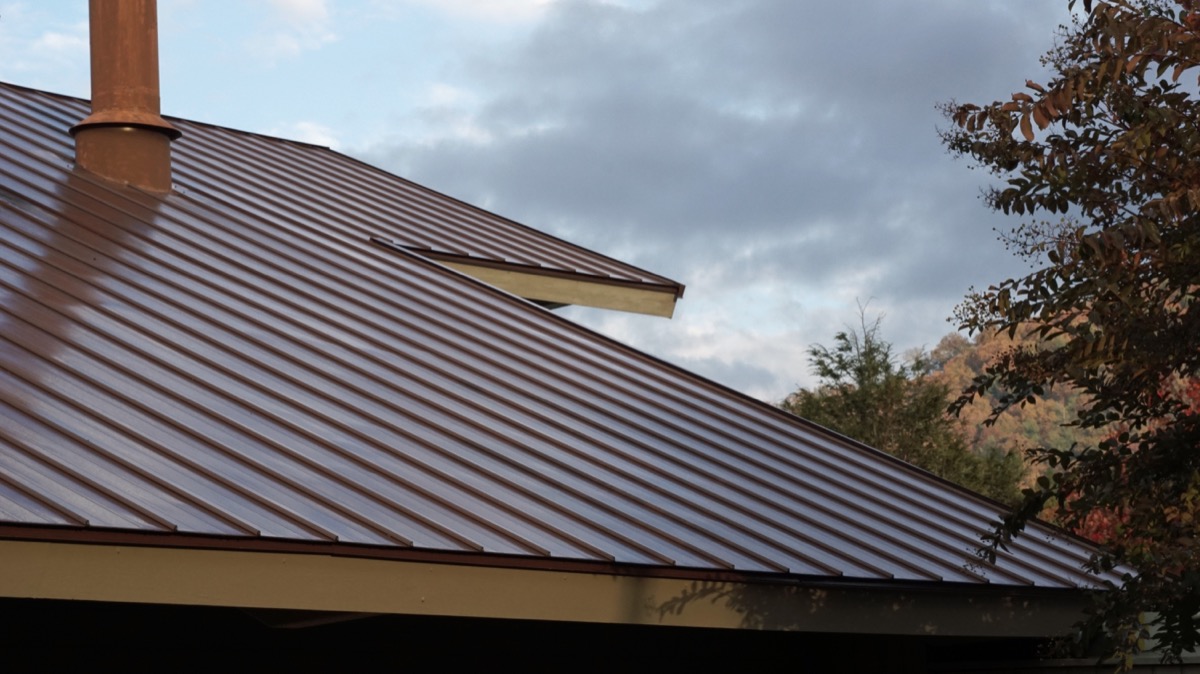
Forgoing traditional shingles for a standing seam metal roof may add some aesthetic appeal to your home, but that expensive investment probably won't pay out when you go to sell. Not only is a metal roof noisy during inclement weather, but Guernsey cautions that any trendy design elements—like a metal roof—can tank a sale. When in doubt, "stick to the classics," she suggests. And for some upgrades that are worth the money, check out these 40 Genius Ways to Increase Your Home's Value.





















